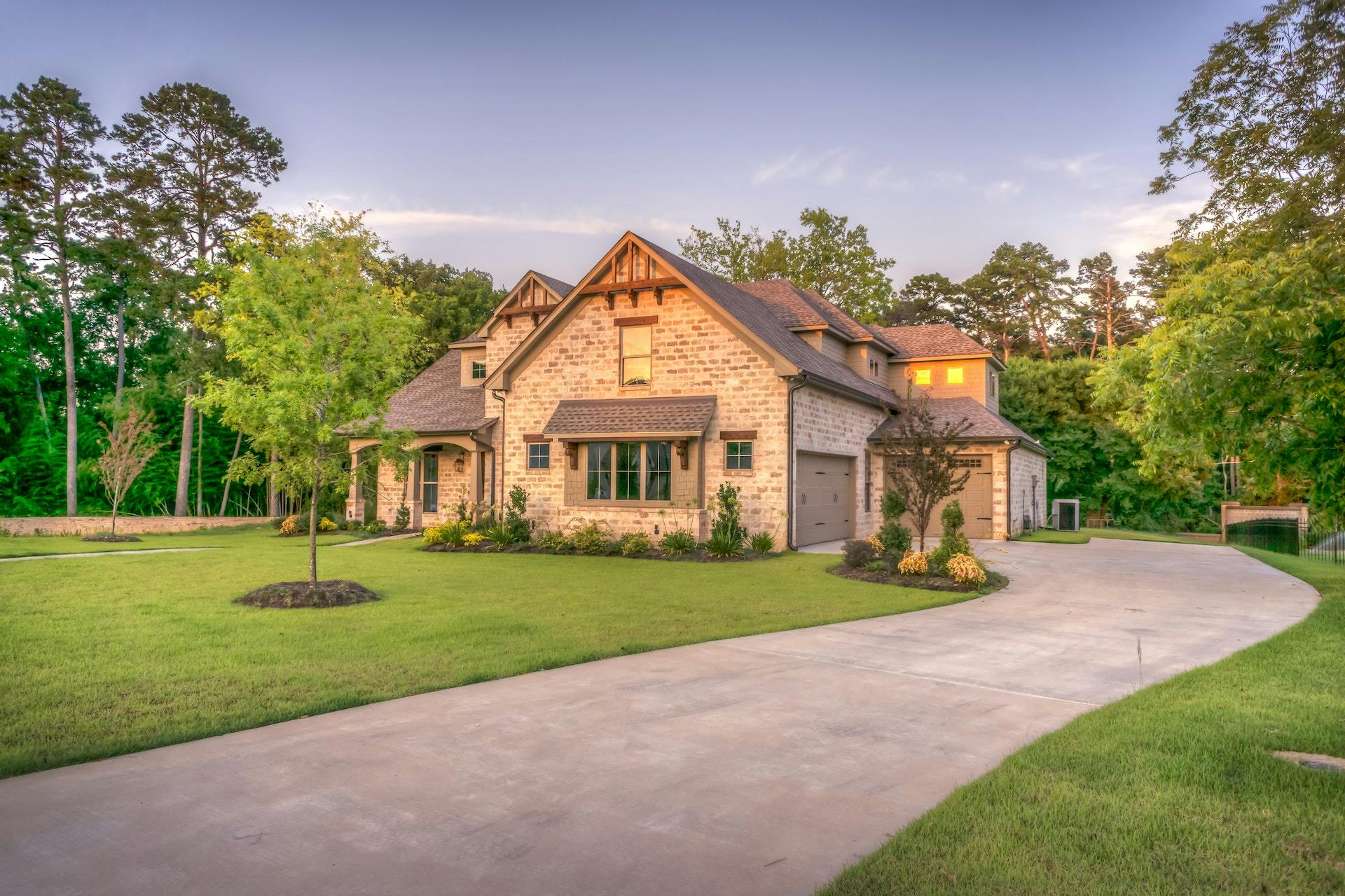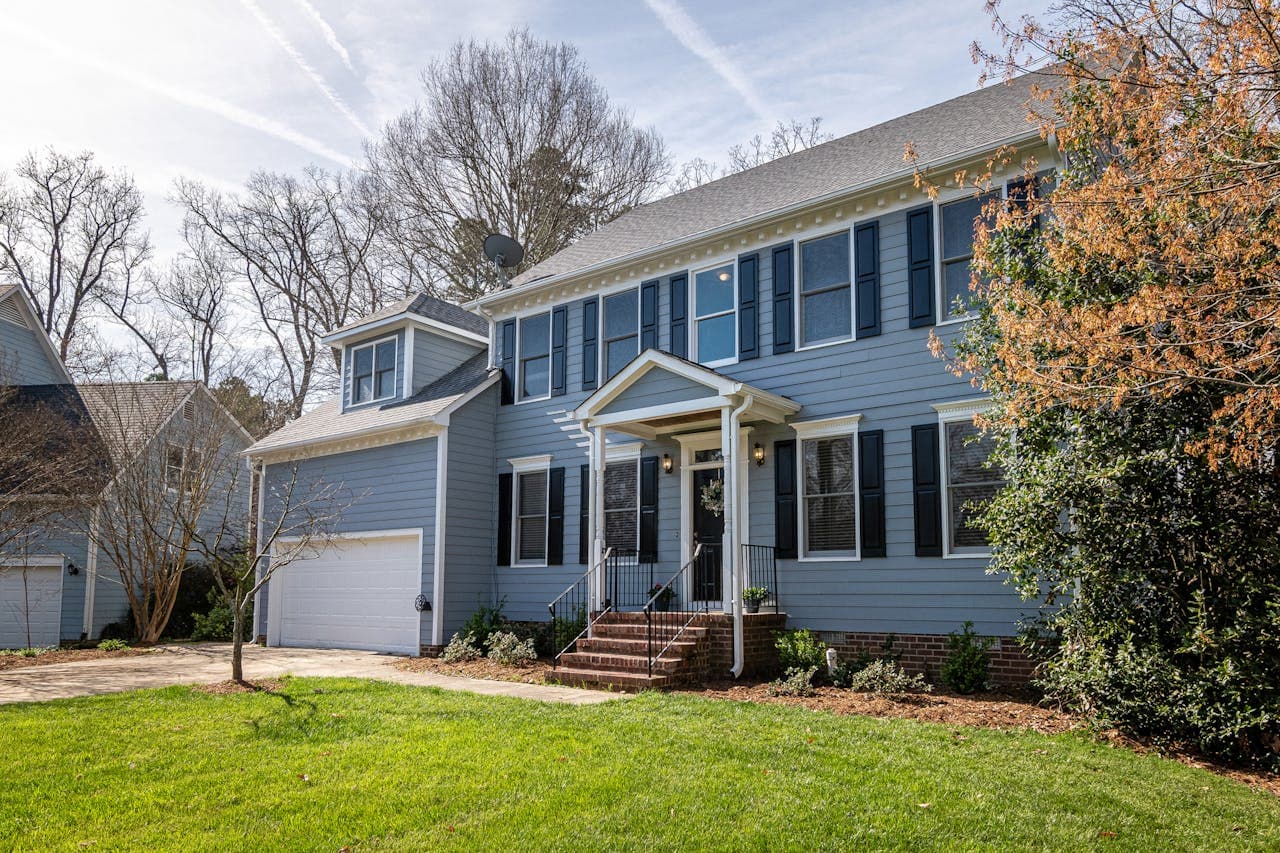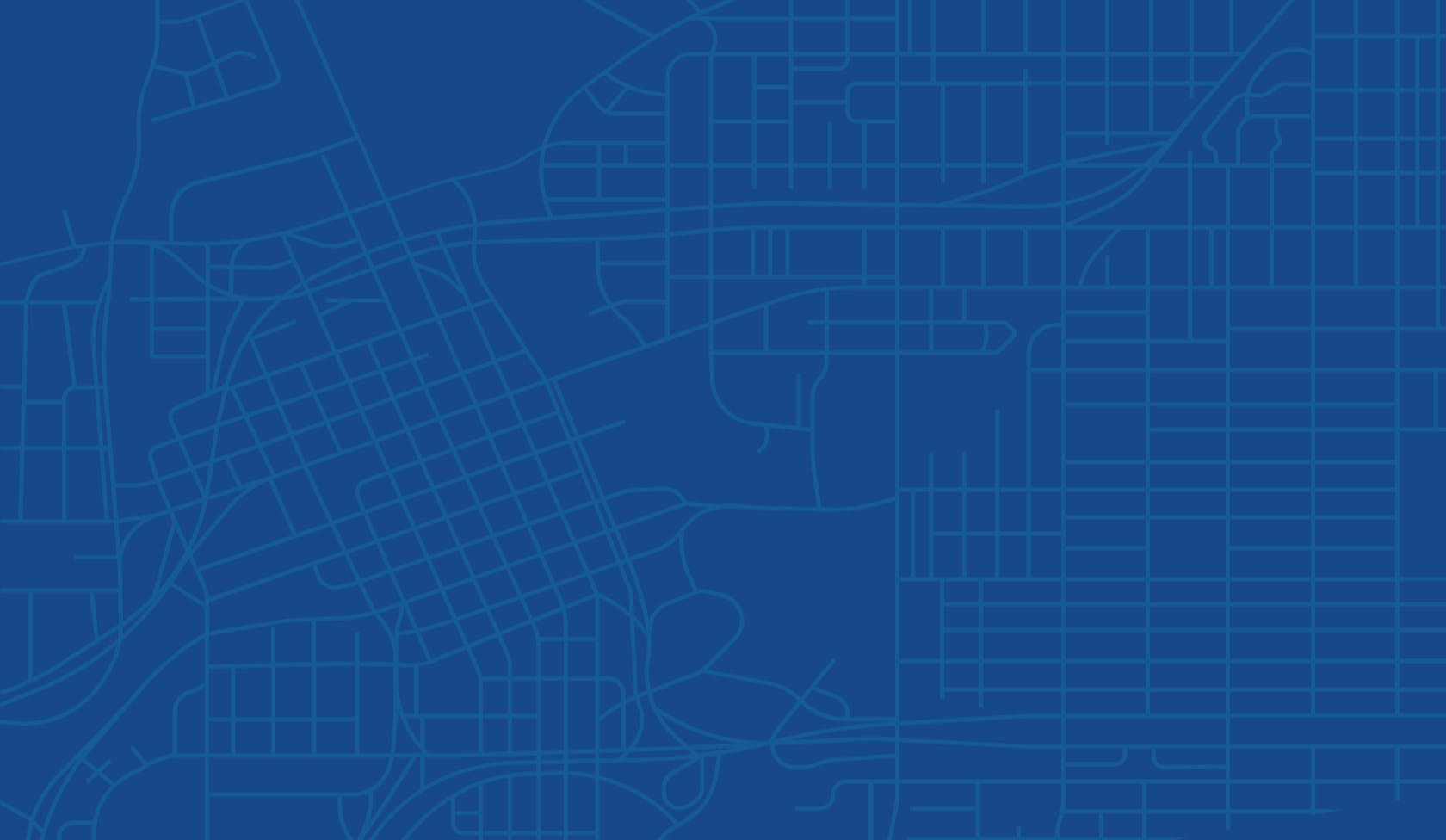If you are wondering what salary you need to afford a $500,000 house, you are not alone. With the median home price in the United States hovering around $417,000 and 36 metro areas now exceeding the $500,000 threshold, half a million dollars has become a realistic target for buyers in many markets. The short answer: you will likely need a household income between $125,000 and $165,000 to comfortably afford a $500K home, depending on your down payment, debt load, and location. Here is everything you need to know about making this purchase work.
Ready to Start Your Home Search?
Connect with a top-performing real estate agent who can help you navigate today's market and find the right home within your budget.
Find a Top Agent Near YouIncome Requirements for a $500K House
Lenders use specific guidelines to determine how much house you can afford. The most common standard is the 28/36 rule: your monthly housing payment should not exceed 28% of your gross monthly income, and your total debt payments (including housing) should stay below 36% of gross income.
With current mortgage rates averaging around 6.27% as of December 2024, here is what your income needs to look like for different down payment scenarios:
$25,000 down
$50,000 down
$100,000 down
These figures assume no other significant debt. If you have car payments, student loans, or credit card balances, you will need a higher income to qualify for the same mortgage amount.
How Lenders Calculate Your Affordability
Mortgage lenders evaluate your application using the debt-to-income ratio (DTI). This calculation compares your monthly debt obligations to your gross monthly income. Most conventional loans require a DTI of 43% or less, though some programs allow up to 50% for well-qualified borrowers.
Here is how DTI affects the salary needed for a $500K home:
| Monthly Debt | Required Income (20% Down) | Required Income (10% Down) | Required Income (5% Down) |
|---|---|---|---|
| $0 | $125,000 | $145,000 | $155,000 |
| $500/month | $145,000 | $165,000 | $175,000 |
| $1,000/month | $165,000 | $185,000 | $195,000 |
| $1,500/month | $185,000 | $205,000 | $215,000 |
Income estimates based on 6.27% mortgage rate, 1% property tax, and $275/month homeowners insurance.
Breaking Down the Monthly Payment
Understanding exactly where your money goes each month helps you plan realistically. A $500,000 home purchase involves more than just principal and interest payments.
Total Monthly Payment: $3,211
With a smaller down payment, your costs increase significantly. Putting down less than 20% triggers private mortgage insurance (PMI), which typically costs 0.5% to 1% of your loan amount annually.
20% Down Payment ($100K)
Loan Amount: $400,000
Monthly P&I: $2,469
PMI: $0
Estimated Total: $3,211/month
5% Down Payment ($25K)
Loan Amount: $475,000
Monthly P&I: $2,932
PMI: ~$198
Estimated Total: $3,872/month
The difference between these scenarios amounts to $661 per month, or nearly $8,000 per year. Over the life of the loan, smaller down payments cost significantly more in interest and insurance.
How Location Affects Affordability
Property taxes and insurance rates vary dramatically by state and can swing your required income by tens of thousands of dollars. A $500,000 home in New Jersey carries very different costs than the same priced home in Hawaii.
Source: NAHB analysis of 2024 American Community Survey data
These differences translate to real dollars. On a $500,000 home, annual property taxes range from about $1,500 in Hawaii to over $11,000 in New Jersey. That is an $800/month difference in your housing payment before you even factor in mortgage costs.
The Affordability Gap: Reality vs. Requirements
The math reveals a challenging reality for many American households. With median household income at $83,730 and the income needed for a $500K home starting around $125,000, there is a substantial gap between what most people earn and what lenders require.
Source: U.S. Census Bureau 2024 data; income requirements based on 28% housing ratio
This gap explains why many buyers pursue alternative strategies: dual-income households, larger down payments from savings or family assistance, or targeting lower-priced markets where $500,000 buys significantly more house.
Calculate Your Home Affordability
Home Affordability Calculator
Enter your financial details to see what income you need for a $500K home, or what price you can afford based on your current income.
Get Pre-Approved to Know Your Exact Budget
A mortgage pre-approval gives you a precise picture of what you can afford. Work with a top agent who can connect you with trusted lenders.
Connect With a Top AgentStrategies to Afford a $500K Home
If your income falls short of the requirements, several proven strategies can help bridge the gap.
Increase Your Down Payment
Every dollar you put down reduces your loan amount, monthly payment, and potentially eliminates PMI. Saving an extra $25,000 to move from 5% to 10% down can reduce your required income by approximately $10,000 per year.
Consider automating your savings with dedicated accounts. Many buyers use high-yield savings accounts or money market funds while building their down payment to earn additional returns.
Improve Your Credit Score
Your credit score directly impacts your mortgage rate. The difference between a 680 and 760 credit score can mean a 0.5% to 1% rate difference. On a $400,000 loan, that translates to $200 to $400 per month in savings.
Focus on paying bills on time, keeping credit utilization below 30%, and checking your credit report for errors. Even small improvements can qualify you for better rates and help you secure lower mortgage rates.
Reduce Existing Debt
Paying down car loans, student loans, or credit card balances before applying for a mortgage improves your DTI ratio. For every $500 reduction in monthly debt payments, you can qualify for roughly $20,000 more in home purchase price.
Explore Government-Backed Loans
FHA, VA, and USDA loans offer more flexible qualification requirements than conventional mortgages. VA loans, available to eligible veterans and service members, require no down payment and no PMI. FHA loans allow down payments as low as 3.5% with more lenient credit requirements.
Consider Alternative Markets
If $500,000 stretches your budget in your current area, exploring nearby markets or different neighborhoods might offer better value. Working with an experienced agent who knows multiple areas can help you identify communities where your money goes further without sacrificing quality of life.
What $500,000 Buys in Different Markets
The value of a half-million-dollar home varies enormously across the country. According to NAR data, $500,000 is the median home price or higher in 36 metropolitan areas, primarily in coastal regions.
| Market | $500K Gets You | Median Home Price |
|---|---|---|
| San Francisco, CA | 1BR condo or fixer-upper | $1,200,000+ |
| Austin, TX | 3BR home, decent area | $547,500 |
| Sacramento, CA | 3BR home, good condition | $500,000 |
| Portland, OR | 3-4BR home, suburbs | $512,500 |
| Phoenix, AZ | 4BR home, good area | $450,000 |
| Tampa, FL | 4BR home, updated | $400,000 |
| Indianapolis, IN | 5BR home, premium area | $280,000 |
Source: NAR Metropolitan Median Area Prices, Q3 2024
Understanding local market dynamics is crucial. A knowledgeable real estate agent can help you identify which neighborhoods offer the best combination of value, appreciation potential, and lifestyle fit for your budget.
Frequently Asked Questions
With a 20% down payment and no other debts, you need approximately $125,000 to $130,000 in annual household income to afford a $500,000 home. With a smaller down payment of 5%, the required income increases to around $155,000 or more. These figures are based on the standard 28% housing-to-income ratio that most lenders use.
With a 20% down payment ($100,000) at current rates around 6.27%, expect a monthly payment of approximately $3,200 to $3,400, including principal, interest, property taxes, and homeowners insurance. With only 5% down, payments increase to approximately $3,800 to $4,000 per month due to the larger loan amount and required PMI.
A $100,000 salary alone typically is not enough to qualify for a $500,000 home purchase. Most lenders would approve you for a home in the $350,000 to $400,000 range at that income level. However, if you have a co-borrower, significant assets, no debt, or can make a larger down payment (30% or more), it may be possible to stretch into a $500K home.
Ideally, put down 20% ($100,000) to avoid private mortgage insurance and secure the best rates. However, many buyers successfully purchase with 10% ($50,000) or even 5% ($25,000) down. The trade-off is higher monthly payments and required PMI until you reach 20% equity. Consider your savings, emergency fund needs, and how quickly you want to build equity when making this decision.
For conventional loans, most lenders require a minimum credit score of 620, though you will get better rates with scores of 740 or higher. FHA loans allow scores as low as 580 with a 3.5% down payment. For a $500,000 home, aim for a score of 700 or higher to qualify for competitive rates that keep your monthly payment manageable.
Property taxes significantly impact your monthly payment and required income. On a $500,000 home, annual property taxes can range from $1,500 in low-tax states like Hawaii to over $11,000 in high-tax states like New Jersey. This $800/month difference affects both your monthly budget and the income lenders require you to have. Always factor in local property tax rates when comparing homes in different areas.
Whether $500,000 is too much depends entirely on your income, savings, and local market. As a general rule, you can afford a home priced at 2.5 to 3 times your annual income. For a $500K home, that means household income of $165,000 to $200,000 for comfortable affordability. If you are stretching to make it work, consider whether a lower-priced home would better serve your long-term financial goals.
Plan on earning at least $125,000 to $165,000 per year to comfortably afford a $500,000 home. The exact amount depends on your down payment size (more down means lower income needed), existing monthly debts (student loans, car payments reduce how much you can borrow), local property taxes and insurance costs, and the current mortgage interest rate. Getting pre-approved by a lender gives you a precise number based on your specific situation.
Your Next Steps
Understanding the income needed to afford a $500,000 home is just the beginning. To move forward confidently, consider these action items:
First, get pre-approved for a mortgage to know exactly what you qualify for. A pre-approval letter also strengthens your position when making offers.
Second, calculate your total monthly costs including taxes, insurance, and potential HOA fees for any homes you are considering. The purchase price is just one part of the equation.
Third, work with an experienced real estate agent who understands your budget constraints and can help you find the best value in your target markets. A skilled agent negotiates on your behalf and can save you thousands on your purchase.
Find Your Perfect Home Within Budget
Connect with a top-performing real estate agent who has helped hundreds of buyers successfully purchase homes. Our agents are selected based on actual performance data, not advertising spend.
Get Matched With a Top AgentDisclaimer: This article provides general information about home affordability and should not be considered financial advice. Actual loan qualification depends on individual circumstances, lender requirements, and current market conditions. Consult with a licensed mortgage professional and financial advisor before making home purchase decisions. Mortgage rates and other figures cited are based on data available at the time of publication and are subject to change.








